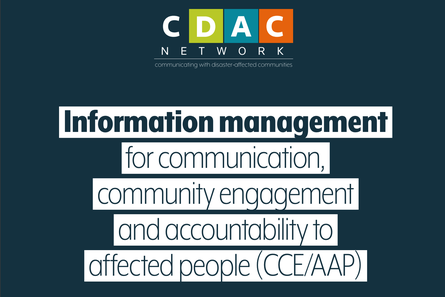
Principled and effective humanitarian action acknowledges that people and communities are the primary responders in a crisis and ensures that they drive decision-making. Information makes this possible.
This document provides guidance on how information management associated with communication, engagement and accountability activities supports humanitarian action.
The guidance is structured in two ways: first, it is organised around the key relevant stages of the Humanitarian Programme Cycles. Second, each stage is organised according to three pillars of collective CCE/AAP work: working collaboratively; sharing information with communities; and listening and responding to communities.
Each stage includes key information management objectives and related activities that may support their achievement, as well as prompting questions to help inform action, suggested key outputs and links to key tools and resources.